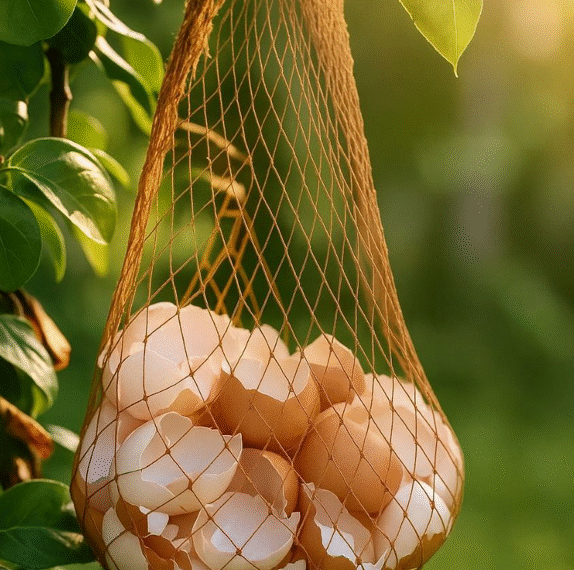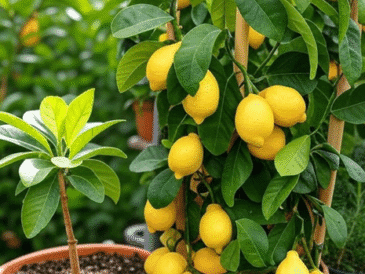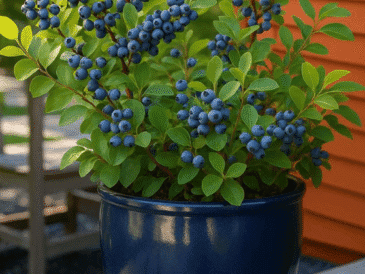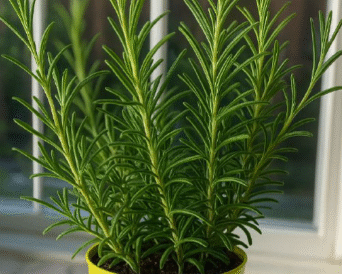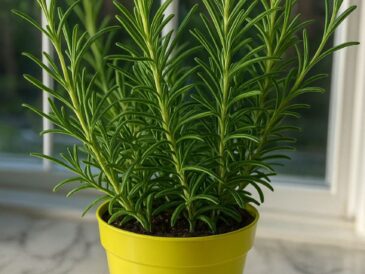As the demand for organic gardening and sustainable living continues to rise, gardeners are increasingly turning to natural, cost-effective solutions to enhance soil health and plant productivity. One of the most overlooked resources in your kitchen might just be your breakfast leftovers—specifically, eggshells. Rather than tossing them in the trash, you can put them to work in your garden in a surprisingly simple way: by hanging them in a mesh bag.
This small, sustainable garden hack is quickly gaining popularity among eco-conscious gardeners. It not only helps reduce waste but also offers a host of benefits for your garden’s ecosystem. Whether you’re a seasoned grower or just getting started, this guide explores why this technique is worth adopting.
1. Eggshells Provide a Slow-Release Source of Calcium
One of the most valuable components of eggshells for gardening is their calcium content. Composed primarily of calcium carbonate, eggshells decompose gradually, releasing calcium into the soil over time. Calcium is essential for strengthening plant cell walls, which can help improve plant structure and overall resilience.
While it’s not a fast-acting fertilizer, the consistent breakdown of eggshells contributes to the long-term health of your garden. Plants such as tomatoes, peppers, and eggplants particularly benefit from added calcium, as they are prone to calcium deficiencies that can lead to blossom end rot.
2. Natural Pest Deterrent for Slugs and Snails
When crushed eggshells are placed in a mesh bag and hung close to vulnerable plants, they can help deter common garden pests like slugs and snails. These pests dislike the abrasive texture of the sharp-edged shells. While it’s not a foolproof barrier, many gardeners find it to be an effective, chemical-free pest control method that complements other organic strategies.
3. Enhances Compost Quality
If you’re maintaining a compost system, eggshells can serve as a valuable additive. They act as a compost booster by supplying additional calcium, which is crucial for optimal microbial activity. Microbes play a vital role in breaking down organic material, and calcium helps to support their metabolic functions.
Though eggshells break down slowly, crushing them into smaller pieces can help speed up the process. Hanging them in a mesh bag near your compost pile allows rain and moisture to begin the decomposition process before they are mixed in.
4. Balances Soil pH Levels
Soil acidity is a common issue in many gardens, often affecting nutrient availability and plant growth. The calcium carbonate in eggshells acts as a natural soil pH balancer, helping to neutralize overly acidic conditions. This is especially beneficial for plants that thrive in a more alkaline soil environment, such as lavender, rosemary, and cabbage.
While eggshells alone won’t dramatically shift soil pH overnight, their consistent use can gradually contribute to a healthier balance.
5. Supports Sustainable Gardening by Reducing Waste
Incorporating eggshells into your gardening routine is a small yet impactful way to embrace zero-waste gardening practices. Instead of sending eggshells to the landfill, reusing them in your garden helps close the loop between kitchen and garden, aligning with principles of permaculture and sustainable living.
By using what you already have, you minimize your environmental footprint and foster a more eco-friendly lifestyle.
6. Attracts Beneficial Birds
During nesting season, birds are drawn to calcium-rich materials to help form strong eggshells of their own. Hanging a mesh bag filled with crushed eggshells can attract these beneficial birds to your garden. In turn, birds can help naturally manage insect populations, serving as a valuable ally in your integrated pest management efforts.
Make sure the eggshells are clean and dry to prevent attracting unwanted animals or odors.
7. Encourages a Regular Garden Routine
A mesh bag of eggshells hanging in your garden can act as a visual cue, prompting you to maintain a consistent gardening schedule. Just seeing the bag can remind you to water, check for pests, rotate crops, or observe any plant health changes.
In this way, the mesh bag becomes more than just a source of nutrients or pest control—it becomes a gentle nudge toward mindfulness in your gardening habits.
8. Boosts Soil Microbial Life
Healthy soil is teeming with microbial life, including bacteria, fungi, and other microorganisms that contribute to nutrient cycling and disease suppression. Eggshells contribute to this dynamic by providing micronutrients and creating favorable conditions for these organisms.
While it may seem like a small addition, consistently adding eggshells to your garden helps nurture the soil microbiome, promoting long-term plant health.
How to Use Eggshells in a Mesh Bag
Implementing this garden tip is simple and requires minimal effort:
- Collect and Rinse your eggshells thoroughly to remove any remaining egg white or yolk.
- Allow Them to Dry completely to avoid odor and mold.
- Crush Them Slightly to increase surface area for quicker decomposition.
- Fill a Mesh Bag (such as an old onion or produce bag) with the crushed shells.
- Hang the Bag in a sunny, well-ventilated spot in your garden, close to vulnerable plants or compost bins.
Not only will this strategy help you make better use of kitchen waste, but it also supports your garden’s health in multiple ways.
Final Thoughts
Using a mesh bag of eggshells in your garden is an easy, low-cost way to support your plants and the environment. From nutrient enrichment and pest control to soil balance and wildlife attraction, this humble hack offers a range of surprising benefits. Whether you’re gardening in raised beds, containers, or an in-ground plot, eggshells can play a small yet powerful role in building a thriving garden ecosystem.
